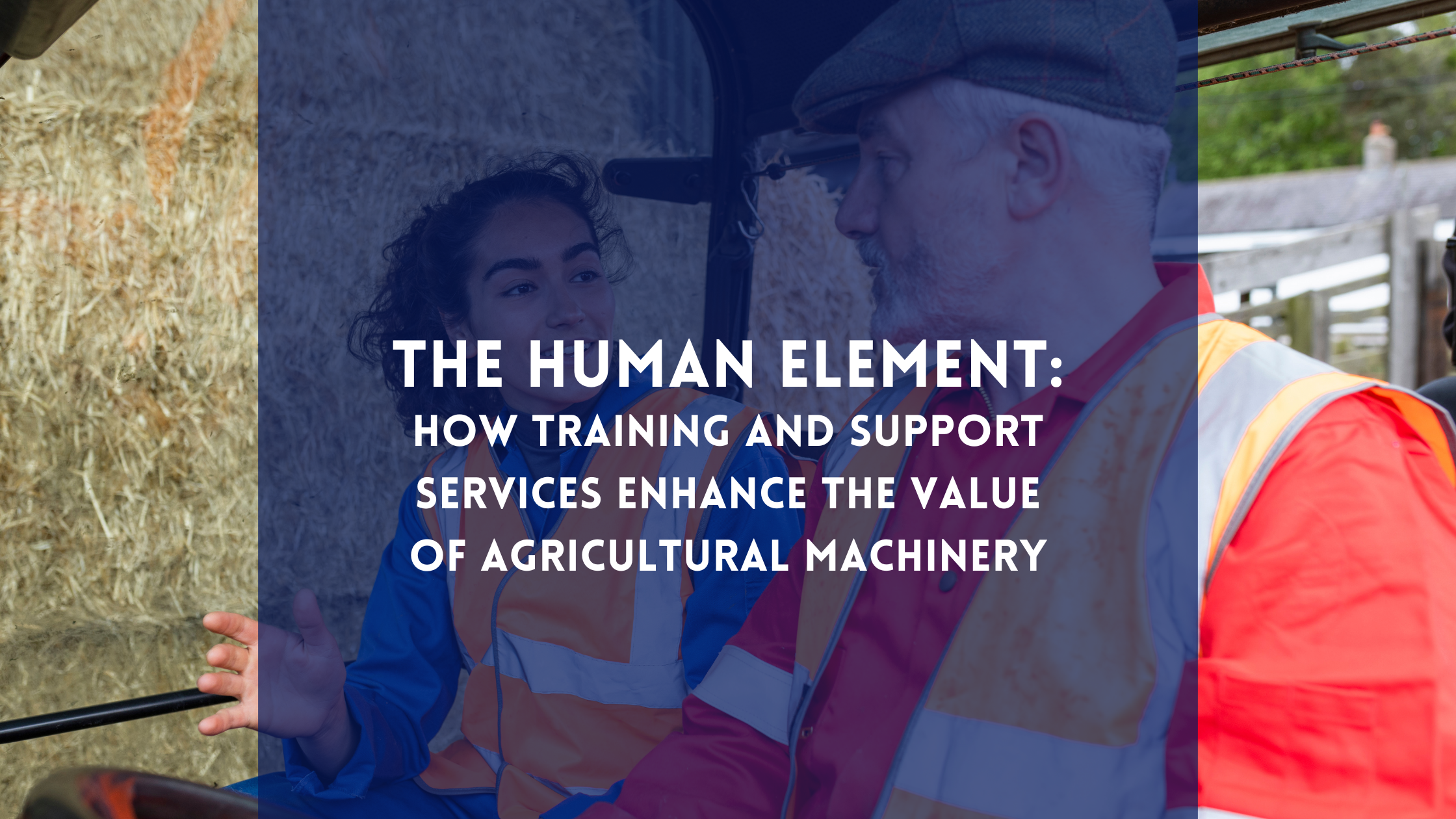The Human Element: How Training and Support Services Enhance the Value of Agricultural Machinery
In the realm of modern agriculture, the value of cutting-edge machinery is undeniable. From tractors and harvesters to precision planters and irrigation systems, advanced agricultural equipment has revolutionized the way farmers cultivate crops and manage their land. However, the true potential of this machinery lies not only in its technological prowess but also in the human expertise behind its operation and maintenance. In this blog post, we’ll explore how training and support services enhance the value of agricultural machinery, empowering farmers to maximize efficiency, productivity, and profitability on their operations.
Equipping Farmers with Essential Skills
Training and support services play a crucial role in equipping farmers with the essential skills and knowledge needed to effectively operate and maintain their agricultural machinery. Whether it’s learning how to calibrate a planter for optimal seed placement or troubleshooting a technical issue with a combine harvester, comprehensive training programs provide farmers with hands-on experience and practical insights into their equipment.
By investing in training initiatives tailored to their specific needs and equipment, farmers can improve their operational efficiency, minimize downtime, and maximize the return on their machinery investment. Moreover, ongoing training and skill development enable farmers to stay abreast of the latest advancements and innovations in agricultural technology, ensuring that they can leverage the full capabilities of their equipment to achieve optimal results in the field.
Enhancing Safety and Reliability
Safety is paramount in agriculture, where the operation of heavy machinery and exposure to various hazards pose significant risks to farmers and workers. Training programs focused on safety protocols and best practices help mitigate these risks by educating farmers on proper equipment operation, maintenance, and emergency procedures.
By promoting a culture of safety and accountability, training initiatives can reduce the likelihood of accidents and injuries on the farm, protecting both human lives and valuable machinery assets. Additionally, training programs that emphasize preventive maintenance and regular equipment inspections can enhance the reliability and longevity of agricultural machinery, minimizing the risk of unexpected breakdowns and costly repairs.
Maximizing Operational Efficiency
Efficiency is the cornerstone of successful farming operations, where time, labor, and resources are precious commodities. Training and support services help farmers maximize operational efficiency by optimizing their equipment utilization, workflow, and productivity.
For example, training programs that focus on equipment setup and calibration enable farmers to fine-tune their machinery for optimal performance in varying field conditions. Similarly, training initiatives that cover precision agriculture technologies such as GPS guidance systems and variable rate application empower farmers to leverage data-driven insights to make informed decisions about seed, fertilizer, and pesticide placement, maximizing yields while minimizing inputs.
Empowering Decision-Making and Innovation
In today’s rapidly evolving agricultural landscape, informed decision-making is critical for staying competitive and sustainable. Training and support services provide farmers with the knowledge and tools they need to make data-driven decisions about their operations, from crop selection and rotation to irrigation scheduling and pest management.
Moreover, training programs that foster a culture of innovation and continuous improvement empower farmers to explore new technologies and practices that can enhance their productivity and profitability. By embracing emerging trends such as robotics, automation, and digital farming, farmers can unlock new efficiencies and opportunities for growth in their operations.
Cultivating Long-Term Relationships and Partnerships
Beyond the technical aspects of machinery operation and maintenance, training and support services also play a crucial role in cultivating long-term relationships and partnerships between farmers and equipment manufacturers or dealers. By providing ongoing support and assistance, manufacturers demonstrate their commitment to customer success and satisfaction, fostering trust and loyalty among farmers.
Additionally, training programs offer valuable opportunities for farmers to connect with industry experts, fellow operators, and peers, facilitating knowledge sharing, collaboration, and networking. These relationships can be invaluable sources of support, advice, and inspiration as farmers navigate the complexities of modern agriculture and work to overcome challenges and seize opportunities.
Conclusion: Investing in the Human Element
In conclusion, training and support services are essential components of the value proposition for agricultural machinery. By equipping farmers with essential skills, enhancing safety and reliability, maximizing operational efficiency, empowering decision-making and innovation, and cultivating long-term relationships and partnerships, training initiatives enhance the value and impact of agricultural machinery, empowering farmers to achieve greater success and sustainability in their operations.
As the agricultural industry continues to evolve, the importance of investing in the human element of machinery operation and maintenance cannot be overstated. By prioritizing training and support services, farmers can unlock the full potential of their equipment, driving efficiency, productivity, and profitability on their operations for years to come.



